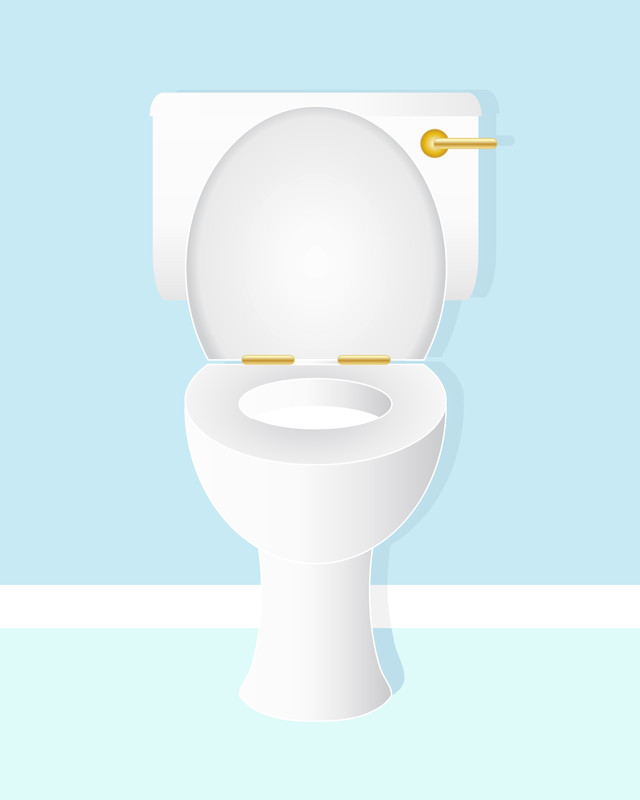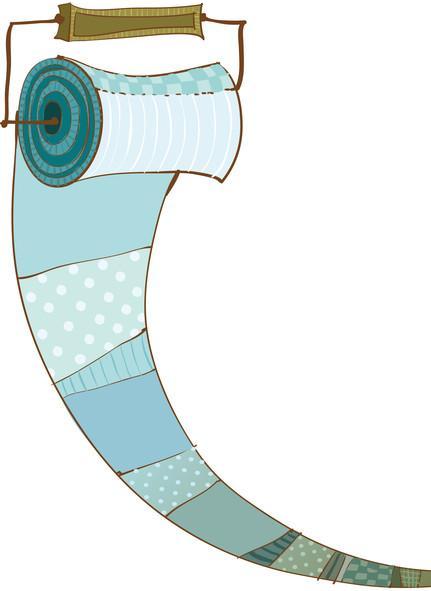The Constipation Express: Everything You Need To Be A Pooper
The Perfect Poop
Under normal conditions, stools should glide out smoothly and cause no discomfort. Once you sit down on the toilet there should be no delay. Well-formed stools are the result of proper consumption and digestion. Healthy stools do not contain undigested food parts. If they have undigested parts, it usually means that you chewed your food too quickly or have insufficient acid to break the food down. For a stool chart and valuable health-related information, click here.
About Constipation
According to recent studies, roughly 12 to 19 percent of the population in North America - as many as 63 million people - suffer from constipation, with the cost of treatment running about $235 million a year. Inpatient care was responsible for 55 percent of the cost, even though constipation is treated mainly in outpatient settings. Constipation affects people of all ages from babies to elderly people, and affects twice as many women as it does men. Constipation is also common during pregnancy. Older adults are five times more likely to have constipation than younger ones.
Constipation is one of the most frequent GI complaints in the United States and reasons why people visit a physician. Constipation is defined as unsatisfactory defecation characterized by infrequent stools (less than 3 per week), difficult stool passage (or passing dry, hard or pellet-like stool), or both.
In a recent Internet-based survey, participants indicated that they often experience multiple symptoms, which occur frequently and can be severe. Difficult stool passage includes straining, incomplete bowel movements (incomplete evacuation), hard/lumpy stools, prolonged time between bowel movements, or the need for manual removal of stool.
Chronic Idiopathic Constipation (CIC) is by definition a disorder without an identifiable cause (idiopathic = unknown cause), however, several factors may contribute to its development, including insufficient fiber and fluids, inactivity, changes in routine that alter bowel habit, and ignoring the body's call to go to the toilet. There is also a strong association with stress and emotional disturbance, but more research is necessary to unravel the mysterious links between the gut and the brain.
While constipation is usually not serious, it can lead to problems such as hemorrhoids and rectal fissures. Although medication is available to treat constipation, in many cases lifestyle changes are enough to treat and prevent the problem.
Understanding The Causes
Insufficient fluids and motility in the colon are common culprits that lead to constipation. Motility includes contractility (the rate at which the muscles in the colon contract to help pass the stool through), and transit (the time it takes stool to move through the GI system). Disturbances in both water balance and motility can affect stool consistency and frequency. After eating, food moves through your digestive tract. The intestines take water and nutrients from the food. Normally, the process continues until a stool is formed. Squeezing contractions in the intestine then pass the stool out of the body.
If the colon absorbs too much water, the consistency of stools can be hard, dry, and difficult to pass. In addition, these hard, dry stools may be small and lack the bulk to stimulate the urge to defecate, resulting in infrequent bowel movements. Not having a bowel movement for three days in a row can also cause the stool to become hard and dry. When motility is slowed, movement of stool through the colon may be delayed, again, resulting in infrequent defecation. This slowed movement may in turn result in too much water absorption.
Certain medical conditions, such as irritable bowel syndrome or hormone abnormalities, may also lead to constipation. Other possible causes include local inflammation of the GI tract, intestinal bacterial overgrowth, pregnancy, and psychological factors. Even aging is a factor. In addition, some medications, including narcotic painkillers, often slow the digestive track down, which can result in trouble passing stool.
Although constipation is usually nothing to worry about, it can leave you feeling bloated, uncomfortable and irritable, putting a huge damper on your day. By making certain lifestyle changes, constipation can usually be prevented. However, occasionally it can be a symptom of a serious problem, and if it persists longer than a few weeks you should consult your physician.
Regarding Laxatives
It's not a good idea to use laxatives as the first line of attack when you're constipated. They can become habit-forming to the point that they damage your colon. Some laxatives inhibit the effectiveness of medications you're already taking, and there are laxatives that cause inflammation to the lining of the intestine.
Conventional thinking on laxatives is that if you must take one, find one that's psyllium - or fiber-based. Psyllium is a natural fiber that's much gentler on the system than ingredients in many of the other products available today.
Lubricant Laxatives
As the name implies, lubricant laxatives make stools slippery. The mineral oil within these products adds a slick layer to the intestine's walls and stops the stool from drying out. Though highly effective, lubricant laxatives are best used as a short-term cure for constipation. Over a longer period, mineral oil can absorb fat-soluble vitamins from the intestine, and decrease certain prescription drugs from being fully absorbed into the body. Do not take mineral oil at the same time as other medications or supplements.
Emollient Laxatives (Stool Softeners)
Commonly known as "stool softeners," emollient laxatives such as Colace (or generic Colace) contain docusate, a surfactant that helps to "wet" and soften the stool. Although it might take a week or longer for emollient laxatives to be effective, they are frequently used by those who are recovering from surgery, women who have just given birth, or individuals with hemorrhoids.
INSIGHT
Get the scoop on poop!
INSIGHT
Poops
and
Bladders
This site, including all original art and content, is TM, ®, and/or ©, 2014. All rights reserved.
.


